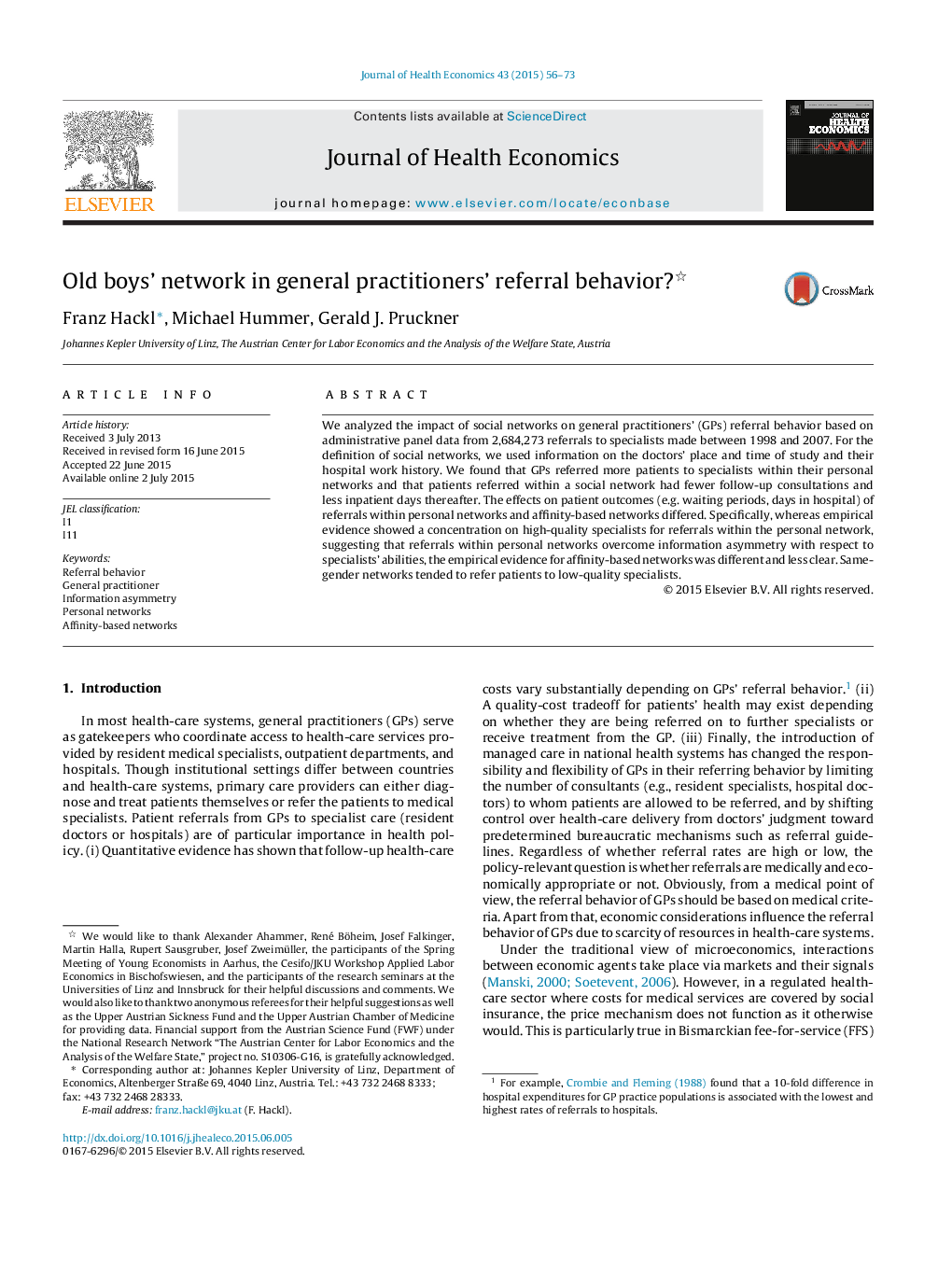| Article ID | Journal | Published Year | Pages | File Type |
|---|---|---|---|---|
| 7363372 | Journal of Health Economics | 2015 | 18 Pages |
Abstract
We analyzed the impact of social networks on general practitioners' (GPs) referral behavior based on administrative panel data from 2,684,273 referrals to specialists made between 1998 and 2007. For the definition of social networks, we used information on the doctors' place and time of study and their hospital work history. We found that GPs referred more patients to specialists within their personal networks and that patients referred within a social network had fewer follow-up consultations and less inpatient days thereafter. The effects on patient outcomes (e.g. waiting periods, days in hospital) of referrals within personal networks and affinity-based networks differed. Specifically, whereas empirical evidence showed a concentration on high-quality specialists for referrals within the personal network, suggesting that referrals within personal networks overcome information asymmetry with respect to specialists' abilities, the empirical evidence for affinity-based networks was different and less clear. Same-gender networks tended to refer patients to low-quality specialists.
Related Topics
Health Sciences
Medicine and Dentistry
Public Health and Health Policy
Authors
Franz Hackl, Michael Hummer, Gerald J. Pruckner,
